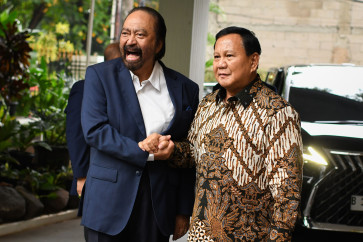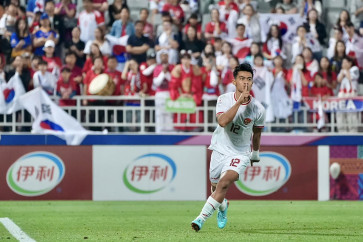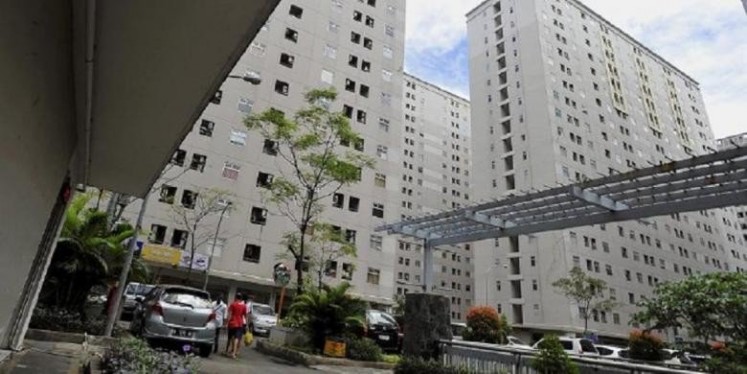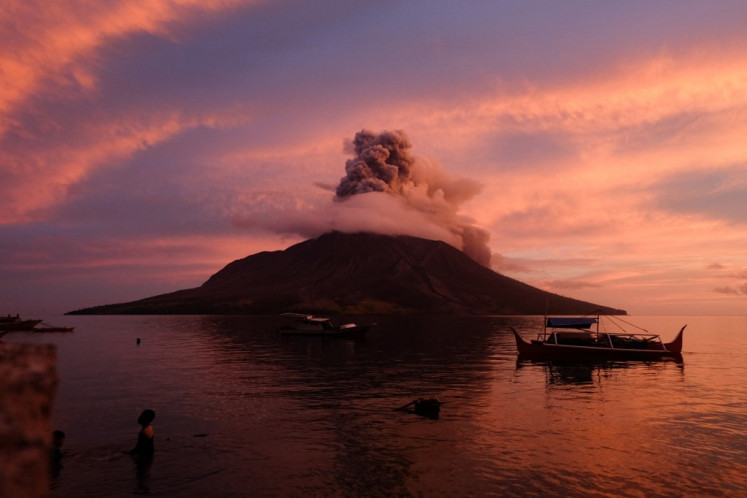Acknowledgment, apology not enough for human rights abuse
Jokowi stated that he would attempt to restore the rights of the victims and their families in a fair and prudent manner and reaffirmed his dedication to healing the wounds of his fellow countrymen and fostering national harmony.
Change Size

O
n Jan. 11, speaking for the state, President Joko “Jokowi” Widodo acknowledged and apologized for the gross violations of human rights in 12 incidents that occurred between 1965 and 2003.
Those are the 1965-1966 mass killing; the “mysterious killings” (1982-1985); Talangsari in Lampung (1989); Rumoh Geudong and Sattis Post in Aceh (1989); the abduction of human rights activists (1997-1998); the May riots (1998); Trisakti and Semanggi I and II (1998-1999); the dukun (shaman) murders (1998-1999); Simpang KKA in Aceh (1999); Wasior in Papua (2001-2002); Wamena in Papua (2003) and the Jambo Keupok in Aceh, which occurred in 2003.
Jokowi’s acknowledgment follows the recommendation of the Nonjudicial Resolution Team for Past Serious Human Rights Violations (PPHAM Team), led by Coordinating Political, Legal and Security Affairs Minister Mahfud MD as stipulated in Presidential Decree No. 17 of 2022.
Some may see this as an attempt by Jokowi to keep his political promise: when campaigning for the 2014 presidential election, he pledged to end serious human rights violations if elected. Nevertheless, in the country’s current context of increasing procedural democracy, shrinking civic space, increasingly repressive apparatus conduct and declining public trust, this can be viewed as a moral advance, although Jokowi is not the first to apologize. President Abdurrahman “Gus Dur” Wahid apologized on behalf of the state for the 1965 incident, although he did not admit the incident was a significant infringement of human rights.
What qualifies as a gross violation of human rights? The International Criminal Court list includes, among other violations: crimes against humanity that cause physical and mental suffering, genocide, war crimes committed by either the military or civilians and aggression. Had it been applied, this qualifier would have covered a much large number of human rights violations in Indonesia in the past than the 12 Jokowi officially recognized. Decades have passed without resolution for the multiple episodes of severe human rights violations in Indonesia. Although the 2000 Human Rights Court Law mandates the use of the legal system, if a violation occurred prior to 2000, it should be resolved by an ad hoc human rights court with the approval of the House of Representatives, and if it occurred after 2000, it is resolved by an ordinary court.
According to the Office of the Coordination of Political, Legal and Security Affairs Minister, at least four cases of human rights violations, i.e., Tanjung Priok, Abepura, the referendum in Timor-Leste and Pania, got their way to the Supreme Court but resulted in nothing, since insufficient legal proof was presented. In contrast, victims and their families continue to face prejudice and life pressure as a result of these instances of severe human rights breaches in the past.
So, what comes next after Jokowi’s confession and apology? He stated that he would attempt to restore the rights of the victims and their families in a fair and prudent manner and reaffirmed his dedication to healing the wounds of his fellow countrymen and fostering national harmony. This is actually not just a promise – it is an obligation, and it must be kept. Public pressure, should it be necessary, must be directed toward safeguarding its fulfillment.
This state's acknowledgment of gross human rights violations has the potential to bolster the government's political actions and maybe enforcement measures. This does not, however, indicate that the infringement has been settled or that the court procedure, which should have been conducted in a legal manner, has been whitewashed. The confession and apology are not legally binding and may even conceal and transfer court settlements to extrajudicial ones.
And, when looking at the bigger picture, we may need to be wary, if not suspicious, of agenda setting. Jokowi's acknowledgment and apology occurred at a time when the public was still debating the government regulation in lieu of law (Perppu) on job creation and the new Criminal Code Law, with somewhat negative sentiment toward these two initiatives. It is therefore logical that the government's admission was made to quell popular sentiment. Since its formation, the PPHAM Team had been criticized by victims, their families and human rights organizations and coalitions due to three fundamental issues.
First, the presidential decree absolves the perpetrators of past serious human rights violations of their transgressions since it is fundamentally flawed, it violates the victims' rights to truth and justice and demonstrates that the state has disregarded the offenders. Second, the appointment of a suspect of human rights abuses (i.e., Said Ali) as a member of the team is in breach of human rights principles and mechanisms. Finally, the foundation of the team to settle human-rights breaches through nonjudicial channels has delegitimized the National Commission for Human Rights (Komnas HAM), which uses judicial measures to resolve cases of grave human rights violations.
Long before the PPHAM Team was established, victims' families had consistently held a Kamisan Action (Thursday Action) every week since Jan. 18, 2007, demanding that the Indonesian government resolve its grave violations of human rights. The action has been ongoing for 16 years, and 759 events have been organized in various locations in Indonesia as of 2023.
Apparently, the most fundamental problem is the government's lack of political will to handle serious human rights crimes through the legal system. Therefore, should the government be committed to restoring the rights of the victims' families, the first thing to do is to erase the negative stigma toward victims and their families and ensure equal access to basic rights and public services.
The administration should place the legal resolution of past serious human rights at the top of its agenda. It is essential that the court disclose cases of human rights breaches so that victims and their families can receive justice, and that the outcomes are binding for all parties, including the imposition of punishments on the accused. No matter how aggressively the reconciliation agenda is pursued, if there are no fact-finding investigations and trials, the efforts are illusory.
In the name of justice and compassion, the resolution of past gross violations of human rights must be carried out properly and comprehensively through disclosure of the facts and an open, legal process. We should be able to put an end to burdening future generations with this historical transgression from the past.
When the haze of the past obscures the horizon, it is impossible for a nation to advance and progress toward the future.
--
Lecturer, Driyarkara School of Philosophy in Jakarta; a Visiting Senior Fellow, ISEAS Singapore; Deputy Chief of Staff to the President 2015-2019; founder and advisor of CIPG and NALAR Institut









